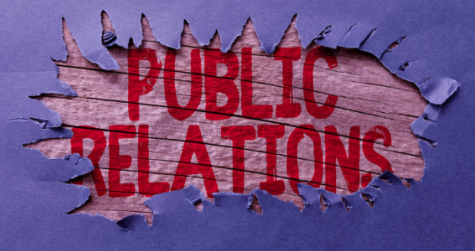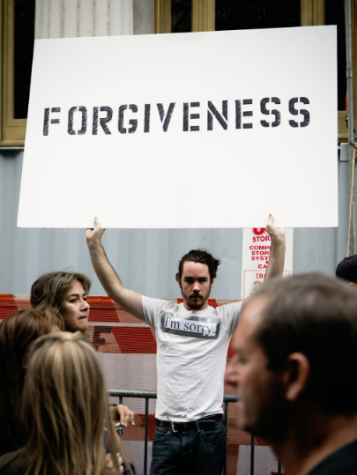Chasing infinity; “The Perks of Being a Wallflower’s” excellence
“We accept the love we think we deserve.”

THE PERKS OF BEING A WALLFLOWER Ph: John Bramley © 2011 Summit Entertainment, LLC. All rights reserved.
Stephen Chbosky’s “The Perks of Being a Wallflower” (2012) is the coming-of-age story of high school freshman Charlie Kalmekis as he learns that he deserves more love than he thought imaginable.
After pictures of star Logan Lerman surfaced showcasing his grown-out salt and pepper haircut, more people than ever are talking about the coming-of-age modern classic. So what makes “Perks” great?
Spoilers ahead.
Opening with Charlie’s first day of high school, his narration tells us that he’s already counting the days until he can leave. Throughout his day, he speaks to no one, only opening his mouth for a brief exchange with his English teacher (played by Paul Rudd) during his last class of the day. Rudd’s character urges Charlie to participate, not just in his class, but in his life. Charlie leaves without a word. Before his story has even begun, he’s already planning to end it.
Instantly a connection is formed between Charlie and the audience; many teenagers are able to relate to his feelings of loss and yearning. Within the opening fifteen minutes of the film, the audience is shown exactly what kind of kid Charlie is: he’s alone, hurting, and wanting to move on from this chapter in his life. That is until he attends the first football game of the season, where he sits next to senior Patrick (played by Ezra Miller) whom he knows from his shop class.
Patrick is everything Charlie wants to be; cool, free, and most importantly, leaving town at the end of the year. When Patrick introduces Charlie to his stepsister, Sam (played by Emma Watson), he is instantly enamored with her. The three hit it off, spending the night getting to know Charlie at the local diner. There Charlie reveals that his late aunt thought he could be a writer, but he is lacking any inspiration. “Write about us,” Sam and Patrick say, setting in motion the rest of Charlie’s life.
Throughout the film, we see flashbacks of how Charlie’s aunt met her end. While picking up Charlie’s birthday present, she was involved in a fatal car accident. Charlie, blaming himself for her death, now suffers from PTSD.
Shortly following the homecoming dance scene, set to Dexys Midnight Runners’ “Come On Eileen,” Patrick and Sam take Charlie to an afterparty, where he nonchalantly brings up why he has been so lonely this year. Here we learn that Charlie’s best (and only) friend from middle school had taken his life the past May. Shocked, Sam gathers the crowd where Patrick gives a heartwarming toast to their new friend, Charlie. “You see things and you understand. You’re a wallflower,” Patrick says.
On their way home from the party, a song comes on the radio, awakening some passion in Sam. She urges Patrick to take them through the “tunnel” and he obliges. As they drive through the tunnel, rock song on the radio, Sam crawls into the bed of the truck, standing up straight, her arms outstretched. Looking on in awe is Charlie, who turns to Patrick. “I feel infinite,” Charlie says, finally belonging somewhere.
As the film goes on, Charlie time and time again puts aside his own happiness for the sake of his friends whether dating a mutual friend to make said friend happy, hiding his true feelings for Sam so she can date a college freshman or letting Patrick kiss him after Patrick’s nasty split with his boyfriend. In Charlie is a trait that not many film protagonists have: empathy.
Where another teenager would take action, Charlie stays still, letting his empathy become his own worst enemy, caging him in a cycle of constantly being left out. By always serving everyone else’s needs, he is never able to take time for his own. After Charlie gets his taste of infinity in the tunnel, he continues to hold himself back from feeling it again.
On Sam’s last day in town before heading off to college, she confronts Charlie about this. “You can’t keep putting everyone ahead of yourself and call that love,” Sam says, stunning Charlie. He admits his feelings for Sam, saying that she has surpassed his late aunt as his favorite person in the world and the two strike up a relationship. However, shortly after her departure, Charlie enters a depressive episode, attempting to take his own life.
Spending the summer in a psych ward, Charlie’s path to recovery involves processing the abuse that he suffered at the hands of his late aunt. A series of flashbacks reveal that when Charlie was young, his aunt molested him after running out on her abusive boyfriend. After her death, Charlie had convinced himself that she was a saint and that he was to blame for her passing, internalizing all his emotions until they burst.
Charlie gets better. After three months, he is released from the hospital. Soon after, Patrick and Sam come home to visit, where Sam shares that she found the elusive “tunnel song” that prompted their drive after the homecoming dance. The three get in Sam’s truck, but this time, Charlie crawls into the bed. Raising his arms to the sky, he realizes that he is not a sad story and that his life is just beginning. “We are infinite,” he says, finally catching that feeling.
Plain and simple, “The Perks of Being a Wallflower” is a perfect coming-of-age movie. Raw in its storytelling, its beauty shines through its characters. A person’s teenage years are some of the most tumultuous times in their lives, and “Perks” exemplifies this; Charlie’s friends individually struggle, and more importantly, they pick each other back up.
The themes of friendship are especially evident during the Secret Santa scene; Patrick gifts Charlie a suit, because in his words, “all great writers wear great suits.” Touched, Charlie reveals that he bought gifts not just for his Secret Santa, but for everyone.
Going even deeper, this film touches on matters of mental health and abuse more delicately than any other film of its time. Where other coming-of-age films of the time such as “Juno” (2007) and “500 Days of Summer” (2009) are overt and heavy-handed in their messages, “Perks” takes a nuanced approach. Charlie is shown to have signs of depression, anxiety, and PTSD, struggling with panic attacks and motivation. Patrick has neurodivergent tendencies, struggling with focus and people skills, and both Sam and Charlie are survivors of sexual abuse.
However, these traits do not define these characters. They are not confined to a box because of their conditions, but rather learn to cope as people with them. By portraying these conditions in such an honest way, Chbosky helps to remove much of the stigma surrounding mental illness.
“Perks” opens with a letter. Charlie sits at his desk, dumping his thoughts onto the page, writing to someone he merely addresses as “friend.” All throughout the story, Charlie retells the events of his life to this “friend,” despite never naming them. Who is this friend? It’s you. By sitting with him through his freshman year, and listening to him when no one else would, you helped Charlie feel infinite. Maybe his journey can make you feel infinite, too.

EDEN WALKER’s first love is writing. Having spent two years on staff already, they are excited to see what their third and final year writing for...







